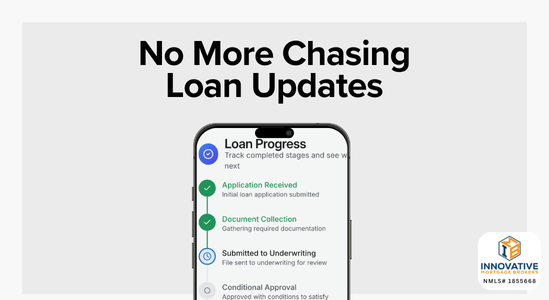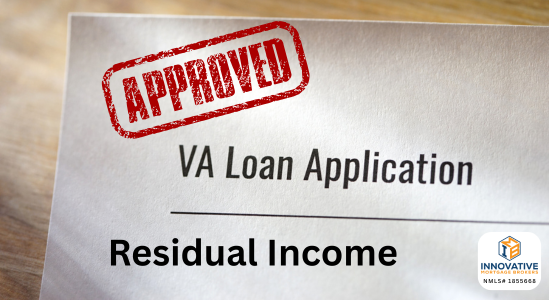Mortgage rate volatility, oil shocks, and why execution matters more than quotes When a war…
Is Now the Right Time to Refinance, or Will Rates Keep Dropping?
Predicting the Market: Are Rates Likely to Fall Further?
With the recent drop in mortgage interest rates after several years of steady increases, many homeowners are left wondering: Is now the right time to refinance, or should I wait for rates to drop even further?
This is a valid concern, especially considering the unpredictable nature of interest rates. However, the answer isn’t straightforward, as it depends on various factors like your current mortgage rate, your financial goals, and the potential future movements of interest rates. Let’s dive into the key considerations that will help you make an informed decision.
Will Rates Keep Dropping?
Over the last few years, interest rates have generally been rising as the Federal Reserve attempted to control inflation. However, with inflation starting to ease, we’ve seen rates gradually decrease. This recent trend has encouraged many homeowners to consider refinancing.
That said, predicting interest rate movements is tricky. While there is hope that rates could continue to decline, there’s no guarantee. The Federal Reserve’s decisions are influenced by multiple factors such as inflation data, employment numbers, and global economic conditions, meaning that rates could just as easily rise again if economic conditions shift.
For homeowners waiting for the “perfect” time to refinance, this uncertainty presents a risk. Holding out for slightly lower rates could mean missing out on current savings or facing higher rates in the future if the market turns.
Is Now the Right Time to Refinance?
When deciding whether to refinance now or wait, it’s essential to consider your current mortgage rate and personal financial situation. If your existing rate is significantly higher than today’s rates, refinancing could help you secure lower monthly payments and save on interest over the life of your loan. It can also reduce the term of your loan.
But refinancing is not just about lowering rates. It also depends on your financial goals. Here are a few scenarios where refinancing now might be the right move:
- If You Want to Consolidate Debt: Even if you could secure a slightly lower or similar mortgage rate in the future, refinancing now could allow you to consolidate high-interest debt like credit cards or personal loans. By rolling these debts into your mortgage, you can potentially lower your overall interest costs and simplify your finances.
- If You’re Looking for Stability: Homeowners with adjustable-rate mortgages (ARMs) may benefit from refinancing into a fixed-rate mortgage while rates are lower. This could protect you from future rate hikes and provide stability with predictable monthly payments.
- If You Want to Cash Out Home Equity: If your home has increased in value, refinancing now can allow you to access home equity for renovations, debt consolidation, or other financial goals. Waiting could mean higher rates and less favorable terms.
How Refinancing Can Help with Debt Consolidation
One of the most overlooked benefits of refinancing is the ability to consolidate high-interest debt. Even if mortgage rates decrease further, refinancing now could provide immediate relief for those carrying debt with significantly higher interest rates, such as credit cards (which can have rates as high as 30%).
By consolidating that debt into a mortgage—where rates are significantly lower—you can reduce your total interest payments. This strategy can lower your monthly outgoings, streamline your debt into one manageable payment, and potentially save you thousands of dollars in interest payments over time.
For example, if you have $15,000 in credit card debt at 20% interest, refinancing into your mortgage at even a slightly higher rate than your current one could still lower your overall interest burden, resulting in substantial savings.
What to Consider Before Refinancing
While refinancing can be a smart financial move, it’s not always the best option for everyone. Here are a few important factors to consider before deciding to refinance:
- Closing Costs: Refinancing comes with closing costs, which typically range. These upfront costs should be weighed against the potential savings of refinancing, but most of the time can be rolled into the new mortgage, instead of you bringing those funds out of pocket as you most likely did for the purchase.
- Break-Even Point: Calculate your break-even point—the time it will take for the savings from your lower monthly payments to offset the refinancing costs. If you plan to stay the mortgage (not the home, because you can refinance again) beyond this period, refinancing could be beneficial.
- How Long You Plan to Stay in Your Home: If you’re planning to sell your home soon, the savings from refinancing may not outweigh the closing costs. Refinancing usually makes the most sense for homeowners who plan to stay in their homes for the long term.
The Importance of a Personalized Review
Every homeowner’s situation is different, and that’s why it’s important to get a personalized mortgage review. At Innovative Mortgage Brokers, we offer thorough reviews of your current mortgage and financial goals, allowing us to help you determine if now is the right time to refinance or if waiting is a better option.
We consider:
- Your current mortgage rate vs. available rates
- Potential savings through debt consolidation
- The costs and benefits of refinancing based on your financial goals
- How refinancing fits into your long-term financial plan
In Conclusion: Act Now or Wait?
Ultimately, the decision to refinance now or wait for lower rates comes down to your financial goals and risk tolerance. While rates may drop further, they could also rise, making it important to weigh the potential risks of waiting against the certainty of current savings. Refinancing now could lock in a lower rate, help you consolidate debt, or allow you to access home equity.
If you’re considering refinancing, contact us today for a free consultation. We’ll walk you through your options and help you determine the best timing and strategy based on your unique situation.





